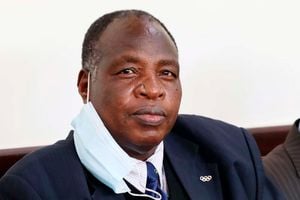Intensify fight against ‘budgeted corruption’
What you need to know:
- Kenya lags behind many others in the annual budget transparency.
- This lack of transparency encourages “budgeted corruption” in Kenya.
A new international survey has just confirmed the rampant pilferage and wastage of public funds that makes a mockery of the government pledge to boost transparency and accountability.
It is, indeed, hardly surprising that this country lags behind many others in the annual budget transparency.
According to the Open Budget Survey 2023, Kenya is at position 48 out of 125 countries in the publishing of information to enable public debate on budget estimates.
In the East African region, however, Uganda tops with a score of 59 per cent, followed by Kenya at 55 per cent, Rwanda at 50 per cent, Tanzania, 41 per cent, and lawless Somalia, at 37, ahead of some more stable countries. A score of 61 per cent shows that a country is more open about discussing graft.
Corruption diverts vital resources from national development to line the pockets of crooked individuals.
This lack of transparency encourages “budgeted corruption” in Kenya.
Non-existent projects
The survey measured public access to information on how the governments raise and spend resources.
The citizens have a right to know how taxpayers’ money is collected, allocated and spent.
This comes at a time when there is public participation on the 2024/25 Budget estimates and with the government coming under scrutiny over the spending of allocated amounts, given the huge deficits.
The Ethics and Anti-Corruption Commission (EACC) has warned against the budgeted corruption through which county executives and assemblies embezzle public resources through non-existent projects.
The beneficiaries include ward representatives, their cronies and members of the executive. The brazen looting is enriching a few well-connected people as the majority are burdened with increasing punitive taxes.
Controller of Budget Margaret Nyakang’o has exposed the inflating of State officers’ salaries, including her own, by over Sh1 billion over the years in what she described as “budgeted corruption”.
To enhance transparency, investigations must be meticulously and speedily carried out and those involved in the misuse and plunder of public resources brought to book.





